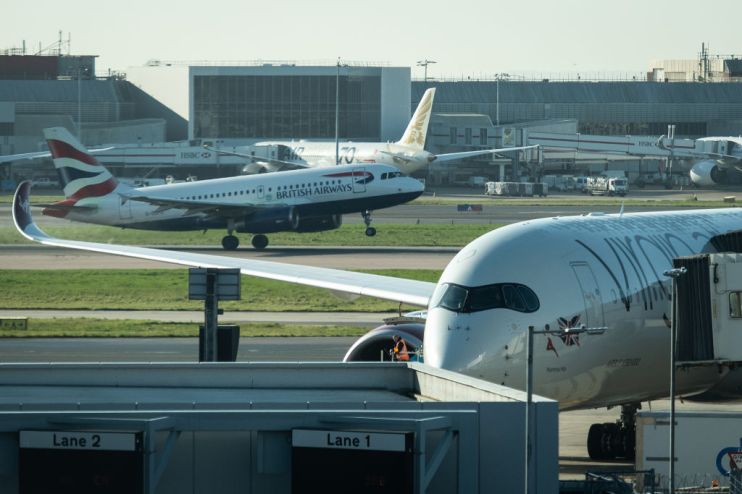Virgin Atlantic accuses Heathrow of ‘cynically’ downplaying recovery to increase fees

Virgin Atlantic has accused Heathrow of “cynically” downplaying its recovery to increase passenger fees.
“With remaining UK travel restrictions now removed, Heathrow is set to be the busiest airport in Europe this year,” a Virgin Atlantic spokesperson told aviation website Simpleflying today.
The airline accused the London-hub of “seeding doubt in the strength of demand” to justify “excess returns” and the increase in passenger fees to shareholders.
Last week Heathrow announced that despite raising annual passenger forecasts from 45.5m to 52.8m, its pandemic-related losses had swollen to £4bn, around £200m more compared with 2021.
The hub said that it will continue to be unprofitable until the end of the year, as passengers number are set to drop drastically after the summer season.
“We are still in a pandemic with many markets still closed, nearly 80 per cent with testing and vaccination requirements and another variant of concern could see the return of UK travel restrictions,” an airport spokesperson said last Tuesday.
The carrier has called on the Civil Aviation Authority (CAA) to “ignore Heathrow’s cynical forecasts and conflicting statements” and choose “the credible, independent evidence of returning demand” when making a decision on airport charges.
Heathrow, the aviation regulator and airlines have been at odds over airport charges over the last few months.
The CAA had initially set the interim cap the airport can charge its airline customers to £30.19 per passenger, angering both the hub and airlines, City A.M. reported.
Heathrow, on the one hand, accused the CAA of threatening its post-Covid recovery as it had initially lobbied for the cap to be set between £32 and £43 per passenger.
Legacy airlines, on the other, lambasted the CAA’s decision saying the measure will compromise the wider aviation sector’s recovery.
According to City A.M. calculations, Heathrow would make £2.3bn if prices were set at £43 per person, but instead is expected to gain £1.6bn from the current interim cap.